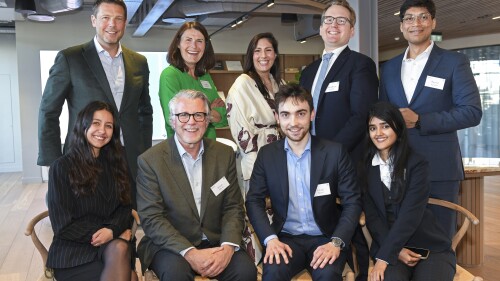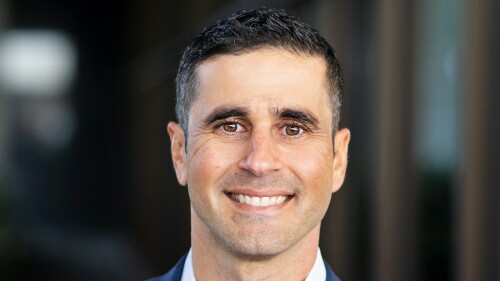Each year, ULI’s impressive lineup of global meetings kicks off in Europe with our real estate investment and development conference, held in Paris during the winter. The 2013 event, held February 5 and 6, drew more than 500 industry leaders from 24 countries around the world—reflecting a steady increase in the geographic diversity of attendees since we started hosting the meeting 17 years ago. With its rich content, dynamic speakers, engaging programs, and ample networking opportunities, the conference was, without question, the most successful since the start of the recession in 2008, and it was among the most successful in the event’s history.
With the theme “Hope, Hype, and Opportunity,” the meeting explored the factors that are fueling a perceptible sense of hope, examined business strategies that reflect a response to reality rather than hype, and pinpointed areas of opportunity. We heard numerous accounts of real estate companies restructuring their businesses over the past five years, deploying new approaches to address industry challenges that still exist, and repositioning themselves for the long term.
The overarching mood was one of cautious optimism. While no one was predicting that market conditions will improve rapidly, it was evident that confidence among Europe’s land use professionals is rising, investment opportunities are improving, and access to capital is easing. At last year’s conference, an informal poll of attendees suggested the then-shaky Eurozone would hold, which of course has turned out to be the case. Among the many notable observations at this year’s event was this from Standard & Poor’s chief economist for Europe, Jean-Michel Six: “Americans have consistently underestimated the political will of Europeans to hold their union together.”
Though there was some difference of opinion over how quickly and solidly Europe’s economy will recover, there was a firm consensus on the economic interdependence—for better or worse—resulting from industry globalization. A keynote session featuring Six from Standard & Poor’s, professor Andrea Boltho of the University of Oxford, and Arthur Segal of the Harvard Business School reinforced the reality of globalization in terms of the impact on capital availability, economic growth engines and the labor force, and the permanent imprint globalization is making on the fortunes and futures of nations around the world.
The conference provided views from both the micro and macro levels of the various components that sustain our industry and our cities. At the micro level, the topic generating the most discussion was, not surprisingly, the state of capital markets. Among the newsmakers were Thomas Garbutt, head of global real estate for TIAA-CREF, who spoke of the U.S. company’s plans to enter the European debt market, and Olivier Piani, chief executive of Allianz Real Estate, who discussed the likelihood of the company expanding its lending operations in Europe.
In addition to the outlook for capital markets, the conference included a session on another familiar topic for ULI—recycling of old buildings. It is an area in which Europe clearly is the global leader, and the discussion underscored just how much the rest of the world can learn from Europe’s experiences with adaptive use.
A decidedly macro view was presented by Steve Rayner, codirector of the Oxford University Programme for the Future of Cities, as he showed images of self-sustaining cities floating in the sky. While the concept is seemingly far-fetched, the point, he said, was to demonstrate that “the future of cities is not just a design challenge, it is a fundamental challenge of the human imagination. . . . Cities are very much the product of human dreams.” (A story detailing Rayner’s ideas begins on page 118.)
Two full days of big ideas, bold visions, and provocative thinking—by all accounts, an event typical of ULI at its best: sharing knowledge with peers and colleagues for the benefit of our industry and the betterment of our communities. Many thanks go to conference chairman Gerard Groener, ULI Europe Chairman Scott Malkin, ULI Europe Chief Executive Joe Montgomery, and all our members throughout Europe who made this event so productive and full of insight.
Of the many lessons learned, perhaps one of the most important takeaways from the Paris meeting is the continued value of ULI’s face-to-face power, which is still very much relevant in a world dominated by virtual communications and social networking. The event was a fine start to our 2013 series of global meetings—the Spring Meeting in San Diego, the ULI Asia Pacific Summit in Shanghai, and the annual Fall Meeting in Chicago—all of which promise plenty of content and social interaction. In between these sessions, hundreds of smaller ULI gatherings, forums, workshops, and conversations will continue to take place, all building ULI’s momentum, all contributing to ULI’s impact, all feeding into the programming that makes these marquee events so successful. At every point of contact, both global and local, ULI’s voice is making a difference.

![Western Plaza Improvements [1].jpg](https://cdn-ul.uli.org/dims4/default/15205ec/2147483647/strip/true/crop/1919x1078+0+0/resize/500x281!/quality/90/?url=https%3A%2F%2Fk2-prod-uli.s3.us-east-1.amazonaws.com%2Fbrightspot%2Fb4%2Ffa%2F5da7da1e442091ea01b5d8724354%2Fwestern-plaza-improvements-1.jpg)


